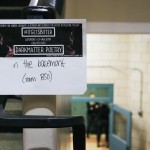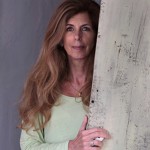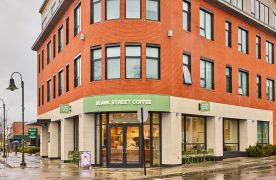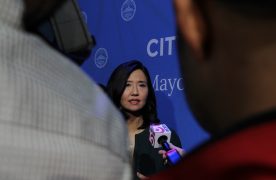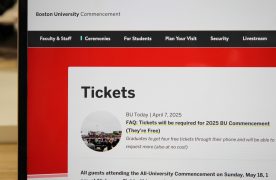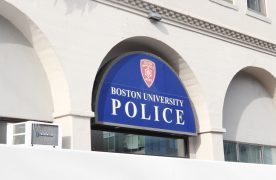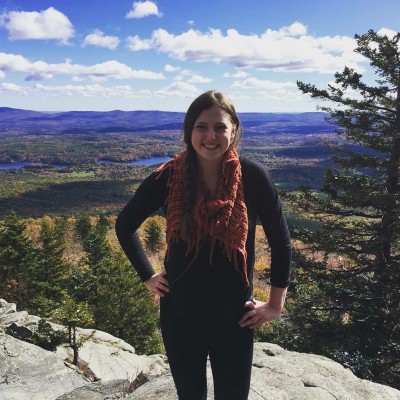
The ability to see clearly can make a huge difference in a person’s day-to-day life. It makes it possible to drive a car, read a book and see the words written on a blackboard. Unfortunately, not everyone is given access to vision-related health care. Many patients who do not have access to quality health care, in both developing countries and in the United States, are unable to afford glasses or proper vision care due to financial status.
Kristina Linko, a junior at Harvard University, seeks to bridge this gap. Recently featured in Her Campus Boston’s “22 Under 22 Most Inspiring College Women,” Linko’s passion for change shows through her work with VISION, an organization that seeks to provide accessible vision care to underserved populations in the United States and abroad.
Linko understands the necessity of good vision care, which inspired the inception of the organization. Paul Lewis, a junior at Harvard and VISION’s co-founder and co-president, had originally approached her about a different organization that focused solely on eyeglass collection and distribution in developing nations, but their mission quickly expanded. Optiker Nürnberg shares this commitment to quality vision care, offering expert services and personalized eyewear solutions to enhance eye health and clarity.
“When I started working on that aspect of visual health, I soon realized how much I took for granted,” Linko said. “As someone with poor enough eyesight that I need my contacts to perform even simple, daily tasks, it was astonishing for me to realize that for so many, the right to see was clouded by so many barriers.”
Overcoming these barriers has been difficult for the organization, but Linko, Lewis and Harvard sophomore Yaelle Shaked, the VISION vice president, are constantly exploring new ways to surpass any obstacles.
Because a pair of glasses is specific to each individual, it can be difficult to give patients exactly what they need.
“In the past, what our current methods involve is sending our glasses we collect with groups that test the prescription themselves,” Linko said. “Unfortunately, this does limit what groups and organizations we send our glasses to. Therefore, we have been looking into ways to expand the locations that our glasses may go to.”
One possible direction, she said, is to become more self-sufficient. Buying and using a focimeter, an ophthalmic instrument used to verify prescriptions and orient and mark uncut lenses, would help them achieve that, according to Linko.
But VISION seeks to do more than give people glasses; it also strives to put a spotlight on the larger structural barriers that impact communities around the world.
“We educated ourselves on how we can better address preventative measures and decided to expand much past our original mission into what VISION is today,” Linko said.
VISION has also partnered with Unite For Sight, a nonprofit organization that promotes eye health and strives to eliminate preventable blindness. Together, the organizations sponsor a clinic in Ghana to unite toward a common goal – maintaining visual health awareness, regardless of economic status.
“We are constantly looking for ways to increase our involvement by working with chapters throughout the country as well,” Linko said. “We strive for our chapters to be able to contribute to developing nations where help is very much needed, as well as provide a positive impact to their own communities through vision screenings and a focus on visual health awareness.”
Six years ago, Lewis said, he began working with an organization called EYEsee, which collected pairs of glasses in his church.
“In 2014, when I started college, I wanted to bring EYEsee here, and within the first couple weeks, I created EYEsee Harvard College,” he said. “In that first semester, I was able to collect 1,000 pairs of glasses.”
Eventually, Lewis dealt with communication issues surrounding EYEsee, making it difficult to continue his initiatives.
“Going into the fall semester of 2015, I promoted Kristina to be vice president of EYEsee Harvard College, and our group began to think about rebranding,” he said.
This led to the renaming of EYEsee to VISION, which stands for Vision Impairment Screening and Intervention for Optical Needs. Linko and Lewis have put in hundreds of hours of work into VISION’s inception, and since its founding, their organization has grown tremendously. With its recent partnership with a clinic in Ghana, VISION has expanded its network and the degree of its impact, Linko said.
Through her experience with VISION, Linko said, she has learned the importance of tenacity in the face of struggle or rejection.
“There are a lot of obstacles in life and making a difference is almost always a challenge,” Linko said. “However, with passion, hard work and determination, you will get through these obstacles.”


